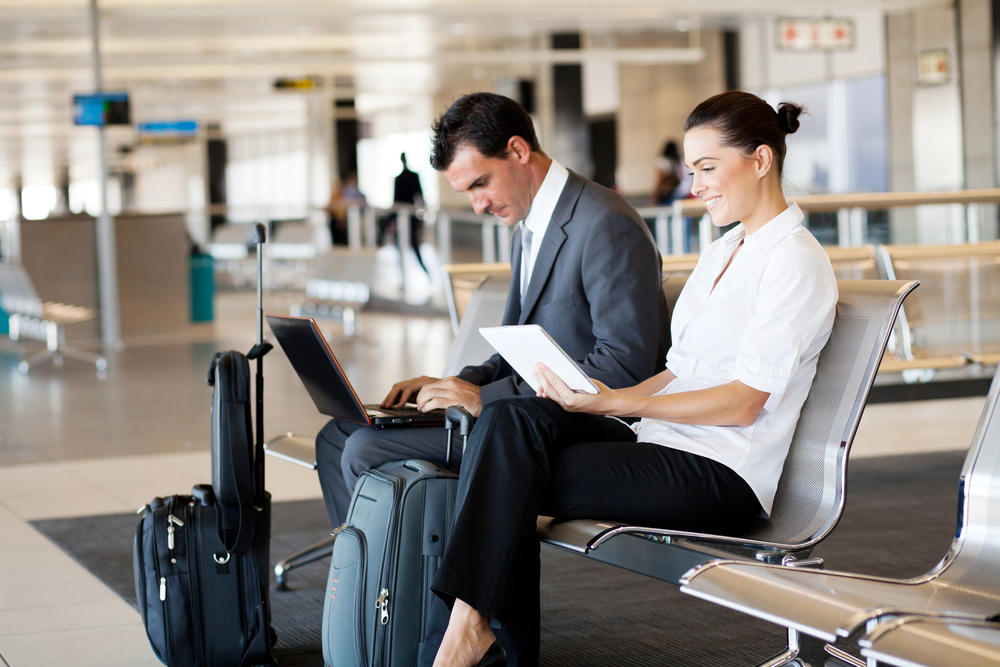Business or Pleasure? Understanding How to Deduct Your Travel Expenses
 Traveling for business can be essential to your business’s growth, but it can also be a significant expense. The good news is, many of these costs are tax-deductible, helping you to recoup at least a portion of that cost. To ensure you take full advantage of these deductions, it’s essential to understand what expenses qualify, how to track them, and the documentation required to support your deductions. Here’s a comprehensive guide to help you navigate the process of deducting business-related travel expenses on your tax return.
Traveling for business can be essential to your business’s growth, but it can also be a significant expense. The good news is, many of these costs are tax-deductible, helping you to recoup at least a portion of that cost. To ensure you take full advantage of these deductions, it’s essential to understand what expenses qualify, how to track them, and the documentation required to support your deductions. Here’s a comprehensive guide to help you navigate the process of deducting business-related travel expenses on your tax return.
Qualifying Travel Expenses
First and foremost, it’s essential to know which travel expenses actually qualify for a deduction. Here are a few broad categories that may help:
- Transportation One of the primary categories of business travel expenses is transportation. This includes airfare, train or bus fare, car rentals, and taxi, rideshare, or shuttle fees.
- Lodging: The cost of lodging, such as hotel stays, while on business travel is deductible. However, the expenses must be reasonable and necessary. Lavish or extravagant accommodations may not qualify.
- Meals: You can deduct 50% of your meal expenses while traveling for business. This includes meals with clients or business associates as long as the discussion focuses on business.
- Incidentals: Incidental expenses include tips, baggage fees, and other minor expenses incurred during business travel. These can be deducted as long as they are necessary and related to your business.
- Car Expenses: If you use your own car for business travel, rather than getting a rental or paying for a ticket, you can deduct expenses using one of two methods:
- Standard Mileage Rate: Multiply the number of business miles driven by the standard mileage rate set by the IRS.
- Actual Expense Method: Deduct the actual costs of operating your car for business, including gas, oil, repairs, tires, insurance, registration fees, and depreciation.
- Other Deductible Expenses: This can include dry cleaning and laundry, business-related phone calls and internet fees, and shipping of baggage and business materials, among other fees.
Tracking Travel Expenses
Accurate record-keeping is crucial for deducting business travel expenses. Maintain detailed records of all expenses, including:
- Receipts: Keep all receipts for travel-related expenses, such as airfare, hotel stays, meals, and car rentals.
- Logbook: Maintain a logbook or digital record of your business mileage if using your car for business travel.
- Credit Card Statements: Use credit card statements as additional proof of expenses.
Utilize accounting software or apps designed to track travel expenses. These tools can simplify the process by automatically categorizing expenses, storing digital copies of receipts, and generating reports.
You should also ensure that business and personal expenses are kept separate. If a trip combines both business and personal activities, only the business portion of the expenses is deductible. Keep detailed records to support the allocation of expenses.
Documentation Needed to Support Deductions
Supporting documentation is key to ensuring you can receive your tax deduction. If you are audited and do not have records supporting your travel expense deductions, the IRS can remove that deduction from your tax return, thereby increasing your tax liability. Here are some documents you should be hanging onto:
- Receipts and Invoices: Collect and store all receipts and invoices related to your travel expenses. These documents should include the date, amount, and purpose of the expense. For meals, note who was present and the business purpose of the meal.
- Itineraries and Agendas: Keep copies of travel itineraries, meeting agendas, and conference schedules to substantiate the business purpose of your trip. These documents help demonstrate that the travel was necessary for business.
- Mileage Log: If you use your vehicle for business travel, maintain a mileage log that includes the date, destination, purpose of the trip, and miles driven. The log should be kept up-to-date and accurate.
- Proof of Payment: Ensure you have proof of payment for all expenses, such as canceled checks, credit card statements, and bank statements. These documents should match the amounts recorded in your expense records.
- Business Purpose Explanation: For each expense, be prepared to explain the business purpose. This can be done through a written description, notes on receipts, or entries in your accounting software.
Deducting business-related travel expenses on your tax return can provide significant tax savings. By understanding what expenses qualify, maintaining detailed records, and keeping the necessary documentation, you can confidently claim these deductions. For personalized advice and to ensure compliance with all tax regulations, contact us at Demian & Company CPAs today to schedule a consultation with one of our experienced tax professionals.